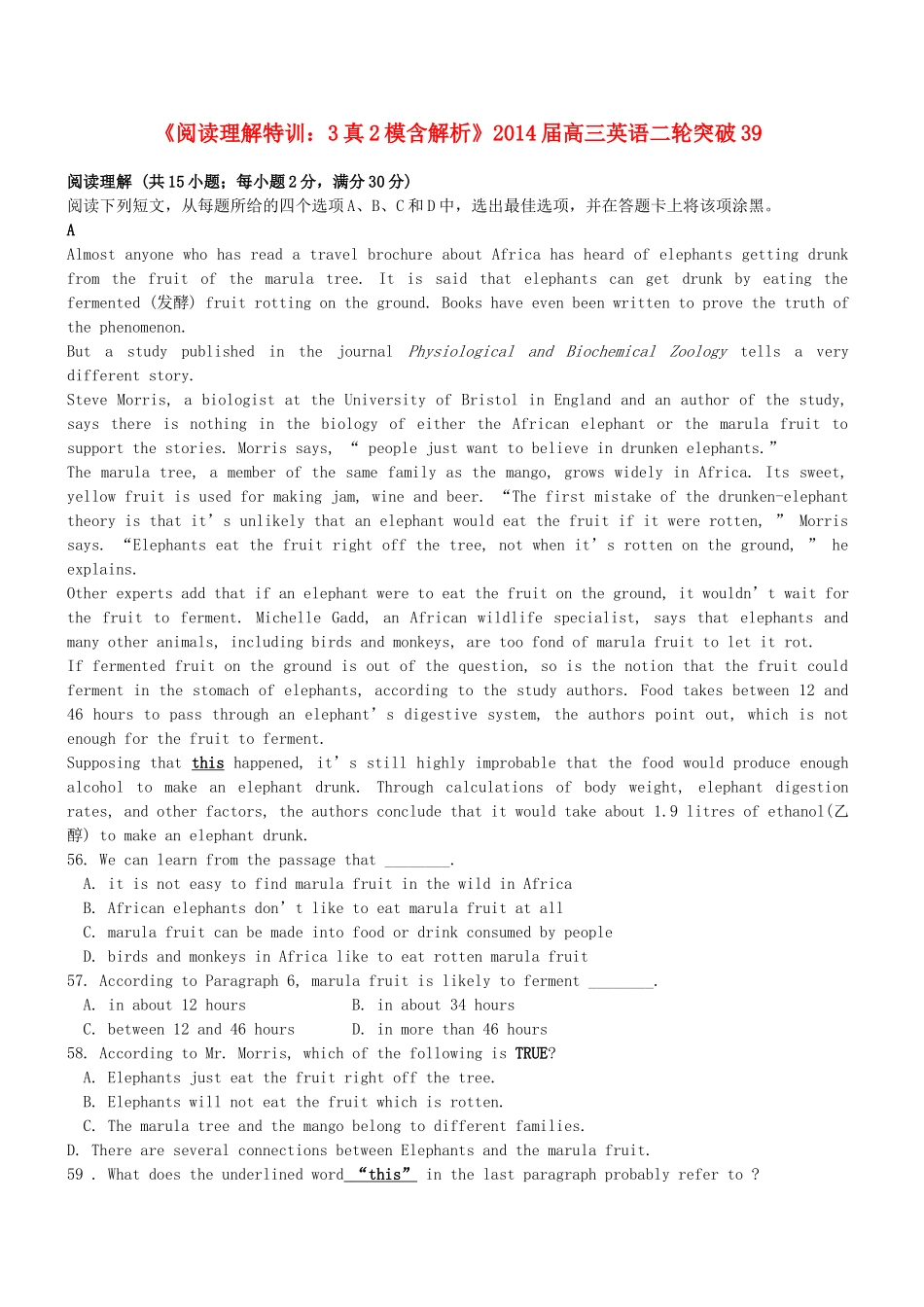《阅读理解特训:3 真 2 模含解析》2014 届高三英语二轮突破 39阅读理解 (共 15 小题;每小题 2 分,满分 30 分)阅读下列短文,从每题所给的四个选项 A、B、C 和 D 中,选出最佳选项,并在答题卡上将该项涂黑。AAlmost anyone who has read a travel brochure about Africa has heard of elephants getting drunk from the fruit of the marula tree. It is said that elephants can get drunk by eating the fermented (发酵) fruit rotting on the ground. Books have even been written to prove the truth of the phenomenon. But a study published in the journal Physiological and Biochemical Zoology tells a very different story. Steve Morris, a biologist at the University of Bristol in England and an author of the study, says there is nothing in the biology of either the African elephant or the marula fruit to support the stories. Morris says, “ people just want to believe in drunken elephants.”The marula tree, a member of the same family as the mango, grows widely in Africa. Its sweet, yellow fruit is used for making jam, wine and beer. “The first mistake of the drunken-elephant theory is that it’s unlikely that an elephant would eat the fruit if it were rotten, ” Morris says. “Elephants eat the fruit right off the tree, not when it’s rotten on the ground, ” he explains. Other experts add that if an elephant were to eat the fruit on the ground, it wouldn’t wait for the fruit to ferment. Michelle Gadd, an African wildlife specialist, says that elephants and many other animals, including birds and monkeys, are too fond of marula fruit to let it rot. If fermented fruit on the ground is out of the question, so is the notion that the fruit could ferment in the stomach of elephants, according to the study authors. Food...


